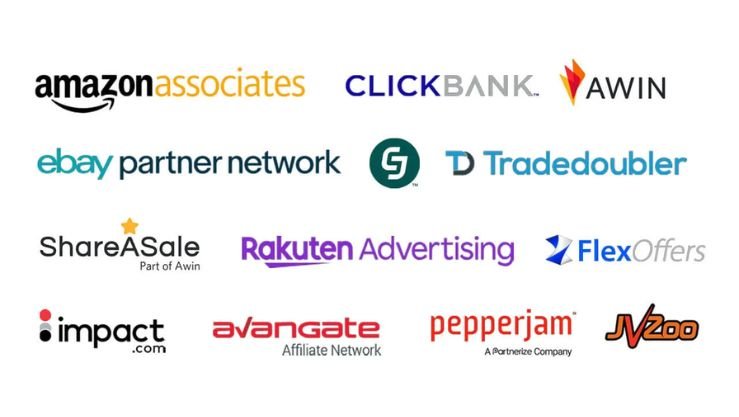Affiliate marketing is one of the simplest ways to start earning money online. Whether you’re running a blog, YouTube channel, email list, or social media page, affiliate links let you earn commissions by recommending products.
But with hundreds of affiliate platforms out there, which one is the best? Should you choose Amazon Associates, ClickBank, ShareASale, or something else?
This article breaks down the top affiliate platforms based on payout potential, ease of use, product variety, and reputation. By the end, you’ll know exactly which platform fits your goals and how to start earning.
What Is an Affiliate Marketing Platform?
An affiliate marketing platform connects you (the marketer) to companies (merchants) offering products or services. The platform provides:
-
Access to affiliate offers
-
Tracking tools
-
Payment processing
-
Marketing assets (links, banners, widgets)
-
Analytics dashboards
Some platforms focus on physical products. Others specialize in digital, subscription, or B2B tools.
What Makes a Platform “The Best”?
There’s no one-size-fits-all answer, but the best affiliate marketing platform should offer:
-
High commission rates
-
Reliable tracking and payments
-
Large selection of quality products
-
Beginner-friendly interface
-
Fast and fair approval process
Let’s compare the top platforms across these points.
1. Amazon Associates
Why People Use It
Amazon is trusted by everyone. You can promote almost any physical product — and still earn if the buyer purchases something else.
Key Features
-
Millions of products
-
Easy to get started
-
Earn commissions even if the buyer chooses another product
-
Integrates well with blogs and content sites
Commission Rates
-
Ranges from 1% to 10%, depending on category
-
24-hour cookie window
Best For
-
Beginners
-
Niche sites and blogs focused on product reviews
-
Lifestyle, kitchen, gadgets, books, and parenting content
Downsides
-
Short cookie window
-
Lower commission rates
-
Some categories (like Amazon devices) pay 0%
2. ShareASale
Why People Use It
ShareASale connects you with thousands of merchants across almost every niche: fashion, home, tech, SaaS, education, and more.
Key Features
-
Easy signup and approval
-
Transparent commission details
-
Trusted by big brands
-
Useful reporting and tracking tools
Commission Rates
-
Vary by merchant
-
Often $15 to $150 per sale
-
Some recurring commissions
Best For
-
Bloggers in lifestyle, fashion, home decor, or parenting
-
Affiliates promoting boutique brands
-
Content creators who prefer a simple interface
Downsides
-
Some merchants take time to approve
-
You have to apply to each merchant separately
3. Impact
Why People Use It
Impact connects you with premium brands and offers powerful tools for professional affiliates. It’s used by companies like Airbnb, Canva, Adidas, and Skillshare.
Key Features
-
Access to big brands
-
Sleek, modern dashboard
-
Precise tracking
-
Direct relationships with brands
Commission Rates
-
Typically higher than average
-
Many offer recurring or performance-based bonuses
Best For
-
Intermediate to advanced affiliates
-
Content creators with good traffic
-
B2C and B2B marketers promoting tools or subscriptions
Downsides
-
Steeper learning curve
-
Not ideal for total beginners
-
Payout thresholds vary
4. ClickBank
Why People Use It
ClickBank focuses on digital products like online courses, ebooks, and software. Commissions are often 50% or more, making it a favorite for high-ticket and info-product marketers.
Key Features
-
No approval needed for most offers
-
Instant link generation
-
Many evergreen products
-
One of the oldest affiliate networks
Commission Rates
-
Often 50%–75%
-
Some recurring offers
Best For
-
Marketers in health, finance, self-help, and business
-
Bloggers and YouTubers creating tutorials or reviews
-
Email marketers using sales funnels
Downsides
-
Many low-quality products
-
High refund rates on some offers
-
You must research each vendor carefully
5. CJ Affiliate (formerly Commission Junction)
Why People Use It
CJ Affiliate is a trusted network with hundreds of well-known brands across travel, tech, retail, and finance.
Key Features
-
Real-time reporting
-
Premium brand partnerships
-
Reliable payments
-
Flexible tools and widgets
Commission Rates
-
Depends on brand
-
Can be flat rate ($20–$300) or percentage (5%–30%)
Best For
-
Travel bloggers
-
Coupon and deal sites
-
Content creators working with global brands
Downsides
-
Merchant approvals take time
-
The platform can feel outdated
6. Rakuten Advertising
Why People Use It
Rakuten is a global affiliate network with trusted retail and lifestyle brands. It’s popular among cashback and coupon sites.
Key Features
-
Exclusive partnerships
-
Advanced reporting tools
-
Dedicated account managers (for high performers)
Commission Rates
-
Depends on merchant
-
Ranges from 3% to 20%
Best For
-
Retail bloggers
-
Cashback or discount-focused sites
-
Affiliates with large audiences
Downsides
-
Slower onboarding
-
Fewer recurring commission offers
7. PartnerStack
Why People Use It
PartnerStack specializes in B2B SaaS (Software-as-a-Service) affiliate programs. It’s ideal for promoting tools that offer monthly or yearly subscriptions.
Key Features
-
Recurring commissions
-
Dashboard designed for SaaS affiliates
-
Popular with marketers in tech, finance, and online business
Commission Rates
-
Often 20%–40% monthly
-
High customer lifetime value
Best For
-
Tech and business bloggers
-
Email marketers
-
Affiliates looking for passive income from recurring payments
Downsides
-
Niche focus
-
Requires content tailored to software buyers
8. Digistore24
Why People Use It
Digistore24 is similar to ClickBank — offering digital products, courses, and some physical products. Many vendors are focused on online education and entrepreneurship.
Key Features
-
High commission products
-
No approval needed
-
Global reach and multilingual support
Commission Rates
-
Up to 85% on some products
-
Many high-ticket offers ($200+ per sale)
Best For
-
Affiliates in personal development, online business, and fitness
-
Social media marketers
-
Affiliates using paid ads
Downsides
-
High competition
-
Some questionable product quality
What’s the Best Platform for You?
Your best choice depends on your niche, experience, and traffic source. Here’s a quick comparison:
| Platform | Best For | Commission Style |
|---|---|---|
| Amazon | Beginners, bloggers, broad audiences | Low %, large volume |
| ShareASale | Lifestyle and niche bloggers | Flat + %, varies |
| Impact | Advanced affiliates, premium brands | % + recurring, high payouts |
| ClickBank | Info product marketers, high ticket | 50%–75% per sale |
| CJ Affiliate | Travel, tech, retail | Brand-dependent |
| Rakuten | Coupons, retail, international | Brand-dependent |
| PartnerStack | SaaS, tech, recurring income | Monthly recurring |
| Digistore24 | High-ticket digital product marketers | Up to 85% per sale |
How to Choose the Right Affiliate Platform
Ask yourself:
-
What niche am I in?
-
Do I want to promote physical or digital products?
-
Do I want recurring income or one-time commissions?
-
How much traffic do I get now — and from where?
-
Do I prefer instant access or brand partnerships?
Start with one platform that aligns with your content and audience. Once you see results, expand.
Final Answer: Which Affiliate Platform Is Best?
There’s no single “best” platform for everyone. But here’s the breakdown:
-
Best for beginners: Amazon Associates
-
Best for high-paying digital offers: ClickBank
-
Best for recurring SaaS income: PartnerStack
-
Best all-round variety: ShareASale or Impact
-
Best for luxury and big brands: CJ Affiliate
Start with what fits your goals now — not what seems most profitable on paper. The best affiliate platform is the one that matches your niche, your traffic source, and your content style.









